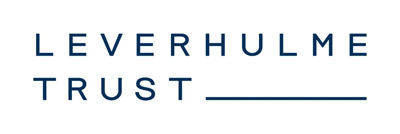Who We Are
Founder
Dr Roy Flechner (UCD)
Principal Investigator
Professor Máire Ní Mhaonaigh (Cambridge)
Network Facilitator
Dr Brittany Schorn (Cambridge)
Steering Committee
Professor Lesley Abrams (Oxford)
Dr Edel Bhreathnach (The Discovery Programme)
Professor Nancy Edwards (Bangor)
Dr Roy Flechner (UCD)
Professor Máire Ní Mhaonaigh (Cambridge)
Dr Erik Niblaeus (Durham)
Professor Sæbjørg Nordeide (Bergen)
Dr Elizabeth O'Brien (UCD)
Professor Orri Vésteinsson (Reykjavík)
To see our Network Partners click here.
OUR RESEARCH
Conversion to Christianity is arguably the most revolutionary social and cultural change that Europe experienced in late-antiquity and the early middle ages. Christianisation affected all strata of society and transformed not only religious beliefs and practices, but also the nature of government, the priorities of the economy, the character of kinship, and gender relations. It is against this backdrop that the network Converting the Isles was founded, in order to investigate social, economic, and cultural aspects of conversion in the early-medieval Insular world, covering different parts of Britain, Ireland, Scandinavia and Iceland. Histories of conversion in the Insular world are bound up in an intricate web of connections that are well attested in contemporary documentary sources. For instance, we know of Irish missionaries operating in Britain and vice versa, there are cases in which religious centres enjoyed patronage from overseas kings, we occasionally see international political alliances being sealed by baptism, and from the late ninth century we encounter seafaring Vikings, whose ancestors were inimical to the church, beginning to serve as catalysts that contributed to the spread of the Christian religion. The combination of places that the network will focus on reflects our wish to establish a wide comparative framework that will highlight these cross-cultural connections, and cover areas that are of significance to the study of conversion in both the pre-Viking and the Viking era.
The last two decades have seen a steady stream of studies devoted to the conversion history of Ireland, Britain and other parts of the Insular world. At the same time, the archaeological map of the region has been significantly augmented thanks to a surge in new finds, some of which—consisting especially of ecclesiastical sites and burials—shed valuable new light on the material culture of newly-converted communities, or communities in a state of religious and cultural transition. This fresh new data is important not only for what it can tell us about individual sites, but also for its cumulative value. Yet most research projects that set out to tap this data have either adhered closely to national and disciplinary boundaries, or else did not approach their subject matter comparatively and collaboratively. Converting the Isles will be different in that its main goal is to foster genuine interdisciplinary dialogue between historians, archaeologists and literary scholars. The interdisciplinary character of the network is meant not only to alert scholars to recent advancements that have been made in other fields, but also to search for ways in which highly specialised disciplines can be made to 'talk' to each other. This concern with interdisciplinarity from a methodological perspective, will be of relevance not just to medievalists, but to any historian engaged in interdisciplinary collaboration, and to novice students who are interested in gaining insights into the historian's craft.
Supported by:


